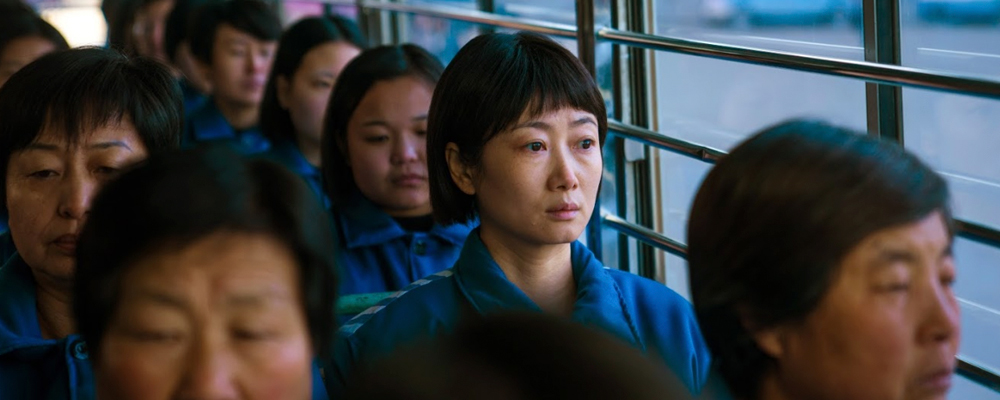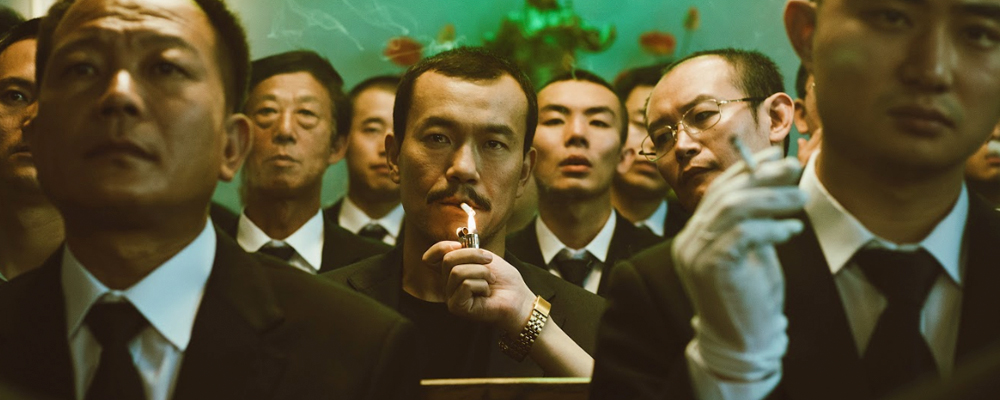Zhao Tao Portrays a Rare Sort of Heroine in Jia Zhangke’s Subtle yet Powerful Epic ‘Ash Is Purest White’
Sandra Miska
17 years in the life of a Chinese woman from humble origins are chronicled in “Ash Is Purest White,” an epic drama from auteur Jia Zhangke. Zhangke chose his home province Shanxi as the setting for the first and third acts of this story that centers around Qiao (Zhangke’s wife and frequent collaborator Zhao Tao), a woman from a depressed mining town who finds excitement in a local nightclub/gambling den frequented by mobsters, or “jianghu,”, the most important one, to Qiao, at least, being her boyfriend, Bin (Liao Fan). Qiao holds her own in this testosterone-drenched world, and the men treat her with a respect due to a mob wife, although Bin has yet to put a ring on it. Even in 2001, the year in which the film opens, Shanxi seems rather provincial — the nightclub is still bumping Village People’s “YMCA” — and Bin wants to make a better life before he can make a commitment. Qiao, for her part, wants stability, not just for herself but also for her aging father.
The first part of “Ash Is Purest” is very expository, as the focus is on exploring the underworld in which Bin and Qiao spend much of their time. The mobsters live by a code of honor, and loyalty and righteousness, qualities that are stronger in some than in others. Although Qiao isn’t officially one of them, she can’t help but take on some of their characteristics, for better or worse, and during what is supposed to be a romantic nature date, Bin teaches his lady love how to shoot a gun. While this might not seem like a big deal to the American viewer, firearms are heavily regulated in China and private citizens generally aren’t allowed to own them. Qiao learns this the hard way after Bin is pulled out of a car in which she is a passenger and beaten within an inch of his life by a rival gang. In a heroic act, Qiao jumps out of the car with the gun, firing warning shots to save her man’s life. Refusing to tell on Bin, the owner of the gun, she gets sentenced to five years in prison.
Despite all this, “Ash Is Purest White” isn’t entirely tragic. Zhao is superb as Qiao, a woman who exudes true grit and moxie, especially after he release from prison. Determined to be reunited with Bin, she undertakes a long journey. After her money is stolen on a ferry, she must live like a jianghu to survive, crashing a wedding, scamming a rich man, and outsmarting a pervy motorbike driver. Rarely in film does one see a character as multifaceted and well written as Qiao.
Although it would be easy for this to be a weepy tale of star-crossed love, Jia avoids being emotionally manipulative. In fact, he makes rather interesting editing choices. For example, we never see the moment in which Qiao and Bin first set eyes upon each other after their long separation. Instead, there is a cut to them walking on a pier. At this point Bin is a broken man, and the paint and regret felt by both is evident in their eyes. All of this leads to a quiet but powerful third act set in present day. Playing characters who age and transform over such a long timespan is a challenge for any actor, and Zhao and Liao prove to be performers of the highest caliber.
“Ash Is Purest White” opens March 15 in select theaters.




